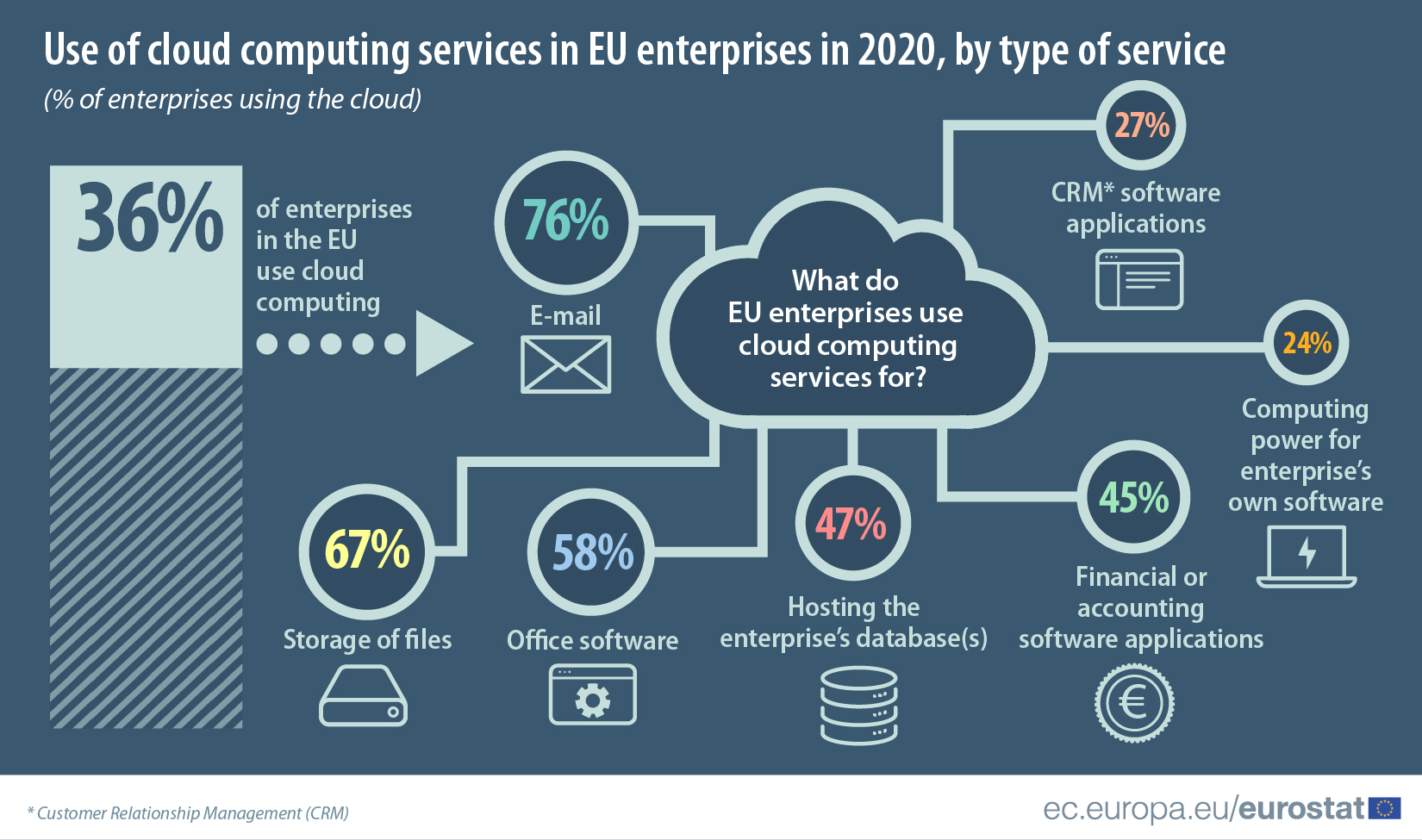Enterprises can access computing resources hosted by third parties on the internet instead of building their own IT infrastructure. This pool of resources is most commonly known as ‘cloud computing’. As cloud services are provided online, enterprises must have internet access to be able to use them. In 2020, 98% of EU enterprises employing 10 persons or more had this access.
Despite this high level of internet access, the use of cloud computing stood at 36% in 2020. This share almost doubled compared with 2016 (19%).
Cloud computing most commonly used in the Nordic Member States
Although the share of firms with internet access was at very similar high levels across EU Member States, the use of cloud computing varied significantly, with the highest shares reported in Finland (75%), Sweden (70%) and Denmark (67%) in 2020.
At the opposite end of the scale, cloud computing services were used by fewer than one in five enterprises in Bulgaria (11%), Romania (16%) and Greece (17%).
Source dataset: isoc_cicce_use
Cloud computing mainly used for e-mail and storage purposes
Of the enterprises that reported using cloud computing, a vast majority (76%) opted for a cloud solution to host their e-mail systems. About two-thirds (67%) used the cloud for storing files, 58% used it for office software (such as word processors and spreadsheets) and 47% to host their database(s).
Most importantly, these enterprises also used the cloud to access more advanced end-user software applications, such as financial/accounting (45%) and customer relationship management (27%). In addition, almost a quarter (24%) of these enterprises reported using the cloud computing platforms to harness computing power to run their own business software applications.
Source dataset: isoc_cicce_use
For more information, you can read the Statistics Explained article on cloud computing use by enterprises.
The data in this article are based on the annual survey on ICT usage and e-commerce in enterprises. For more information on the statistics available in this area, take a look at the overview of statistics on the digital economy and society.
Note: The European Union (EU) includes 27 EU Member States. The United Kingdom left the European Union on 31 January 2020. Further information is published here.
To contact us, please visit our User Support page.
For press queries, please contact our Media Support.


